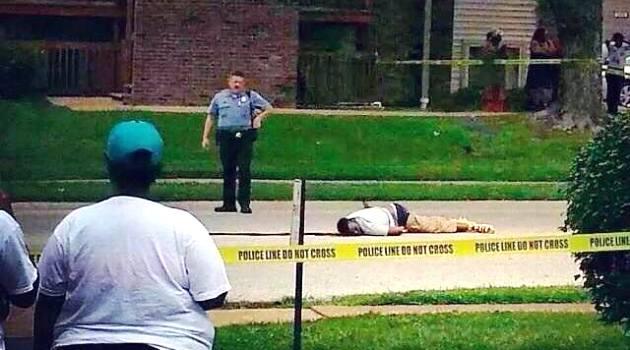Commentary: Correct language in the USA isn't sparing anyone's life

Neither a correct nor a "hypercorrect" vocabulary, in and of itself, is enough to get rid of any problem. Petra Gelbart, who has commented on her shock that the Prague Transit Authority is telling its passengers "amusing" anecdotes about the history of the slang expressions used by drivers, certainly knows this.
When responding to her piece, I think it is important to emphasize this. She saw a poster on a tram in which the Transit Authority was presenting a stylized image of a Prague metro car nicknamed the "Black Mug".
As Gelbart has written: "I wondered how the American public would respond if the New York Transit Authority published a ‘funny’ acknowledgment that this or that particular subway car is colloquially referred to as a ‘nigger’, which is just as insulting of a curse word as ‘black mug’ is (černá huba in Czech). The very idea is absurd. There would be no need for the public to respond, because in the year 2015 something like this simply would not happen – although America has other problems of its own, of course."
This can crudely be interpreted as follows: They don’t call them "niggers" anymore, but police officers shoot them dead and judges convict more of them than anyone else. "Their" president, Barack Obama, is acknowledging that there has been almost no success in erasing racism from American society – rather, the opposite seems true, that in recent years tensions between the "black" and "white" inhabitants of the United States are growing again.
The hypercorrect alibi
There are two levels to this subject. At the first level, it is obvious that the "black" inhabitants of the USA might well be indifferent to whether others correctly refer to them as "African-Americans" when they have the feeling that police officers are racists and are groundlessly murdering them, or when they have the feeling that their standard of living is once again beginning to deteriorate and the "majority" has actually never accepted them.
Similarly, "white" Americans – if they are convinced that blacks are "inadaptable", incorrigible, lazy criminals – might well be indifferent to whether they themselves are harboring such thoughts about "African-Americans" or about "niggers". Here in the Czech Republic we are experiencing a similar phenomenon when it comes to language – most of us no longer say "gypsy", but "Rom".
Has anything been resolved by this change in usage? After all, a significant proportion of the majority in this country still believe the Roma are "inadaptables" who are blackmailing this society.
Many Romani people say their standards of living have deteriorated in recent years. Neither correct language nor the billions of crowns invested into the "Romani problem" have resolved that.
Seen at this first level, "hypercorrect" language can actually become comic, even counter-productive. It can also serve as an alibi, as if the speaker is saying "Look how nicely we talk about you" – if no one will allow themselves (officially) to curse you, then it is clear the atmosphere in society is improving and we are on the right path.
It’s worth it all the same
At the second level, of course, correct language serves a completely clear purpose. It’s like any other display of cultivation, decency, or helpfulness.
In other words, the fact that cultivation and decency in and of themselves are not capable of preventing societal catastrophes and hatred does not mean they are not worthwhile, that they are not values in and of themselves. It may just be that cultivated, decent people are the most important minority in any society, the ones most endangered, the ones that deserve the most attention and support across all groups.
At the first level, taking a stand over the "Black Mug" poster in the Prague tram could seem like a useless, "hypercorrect" freak-out over an innocent joke. It might seem like the much-discussed "elitism" of those who have nothing to do with "normal" people, who don’t understand them at all.
These elites are said to make up for this lack of understanding by inventing their own incomprehensible, unnecessary theses about "normal" people. At the second level, however, this poster looks like an embarrassing, stupid provocation – or like the sad expression of a deeply uncultivated boorishness.
Naturally taking down such posters will not solve the "Romani question" or any other "question". That doesn’t mean such boorishness in the public space has no influence at all.
Its influence is that it multiplies the amount of uncultivated boorishness on offer. Each view of this issue serves a different purpose.
It’s possible that what is basically at work here is a very bizarre, improbable alliance between those who are drowning in "hypercorrectness" as an end in itself – let’s call them the "hypercorrecters" – and the self-absorbed, uncultivated conservatives or "boors" lacking in any empathy whatsoever. Neither knows how to solve the actual problem.